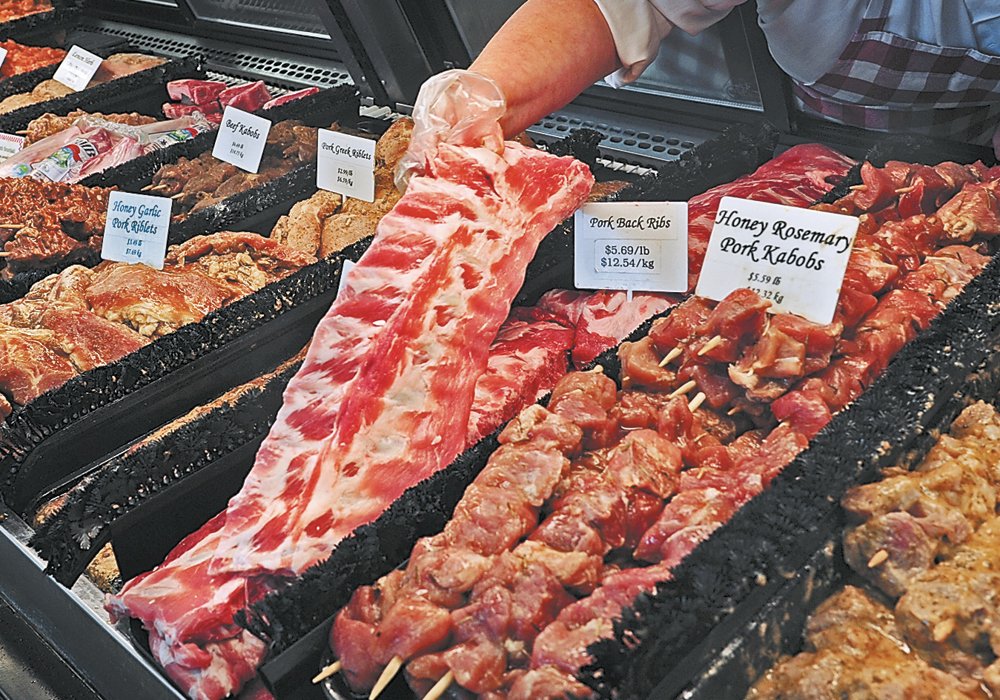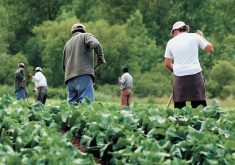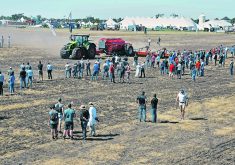Another major meat-processing plant in the United States is temporarily ceasing production, citing concerns over the spread of COVID-19.
Smithfield Foods, the world’s largest pork processor, announced April 9 that it will temporarily close its plant a Sioux Falls, South Dakota.
“The company will suspend operations in a large section of the plant on April 11 and completely shutter on April 12 and April 13,” Smithfield said in a news release.
“Smithfield is taking this action out of an abundance of caution for its 3,700 employees in Sioux Falls, a portion of whom have tested positive for COVID-19.”
Read Also

Farming Smarter receives financial boost from Alberta government for potato research
Farming Smarter near Lethbridge got a boost to its research equipment, thanks to the Alberta government’s increase in funding for research associations.
“During this time, essential personnel will repeat the rigorous deep cleaning and sanitization that have been ongoing at the facility and install additional physical barriers to further enhance social distancing. Employees will be paid for any previously scheduled hours during the temporary closure.”
The suspension is the latest in a series of processing plant closures in the U.S. that has raised concerns about the security of the North American food supply chain.
Earlier in the week, Tyson Foods closed a one of its plants in Columbus Junction, Iowa, after more than two dozen employees tested positive for the virus.
U.S. meat plants run by Cargill, JBS USA and National Beef Packing Company have also closed.
Smithfield Foods’ Sioux Falls facility processes much of the pork that’s produced in Minnesota. The plant’s closure will back up hog shipments and temporarily reduce supplies of processed pork products that are normally shipped throughout the country.
In a statement, Smithfield’s president and chief executive officer Kenneth M. Sullivan, said it’s imperative that the meat protein industry finds ways to keep its facilities open, despite the challenges posed by COVID-19.
“Our government has identified agriculture and food production as critical to the response to COVID-19. They have emphasized over and over again our special responsibility to maintain operations and normal work schedules. They have been explicit: shelter-in-place orders do not apply to us. The reason is obvious. Food is essential for survival and civil society. So, we must produce food for our communities and our countries. It’s our obligation and duty to our fellow citizens.”
Smithfield has implemented a series of measures to minimize the impact of COVID-19.
The measures include the use of mandatory 14-day quarantines where necessary, the addition of
extra hand-sanitizing stations, and provision of personal protective equipment to limit transmission of the virus.
The company is also installing plexiglass and other physical barriers to ensure proper separation between employees and is restricting all non-essential visitors.
“We’re also ensuring employees know how to protect themselves and others from COVID-19 and making certain that they know how COVID-19 spreads,” said Sullivan.
In Minnesota, hog farmers are concerned about the diminished capacity for packers to handle livestock, according to a report in Minnesota’s StarTribune newspaper, based in Minneapolis.
Dave Preisler, director of the Minnesota Pork Producers Association, told the newspaper that some pork producers are adjusting livestock rations to slow production over fears of reduced meatpacking capacity.
“It (Sioux Falls) is a large, very significant plant,” said Preisler, who called the closure “a tension.”
“Hopefully what occurs is that this is temporary and our understanding is that they do want to go back to business next week.”
— With files from Reuters


















